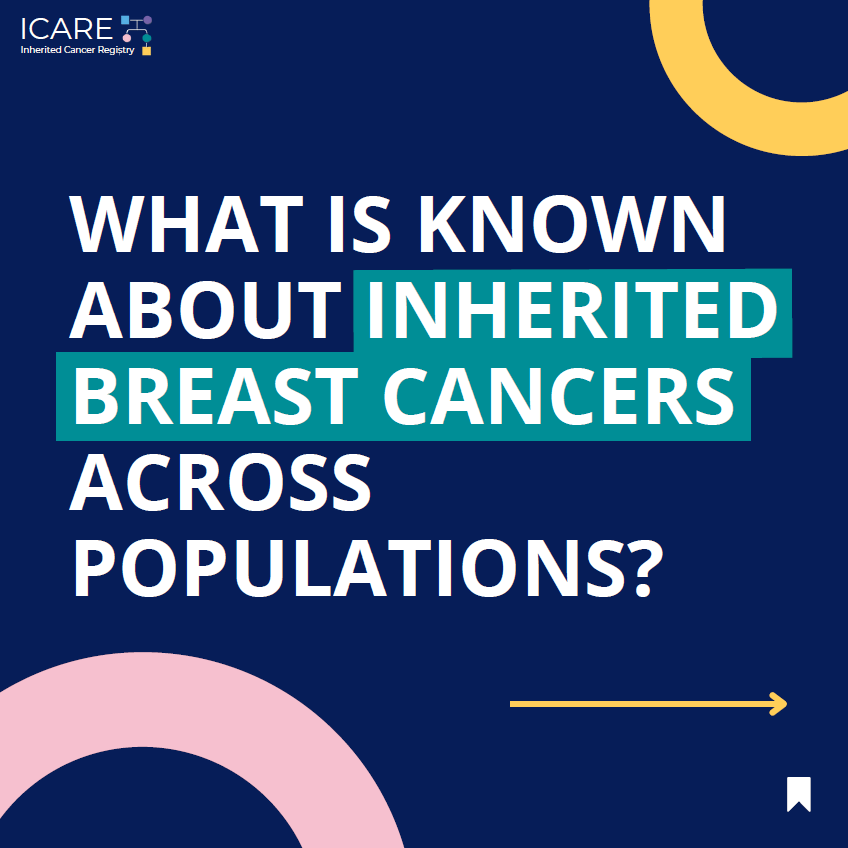
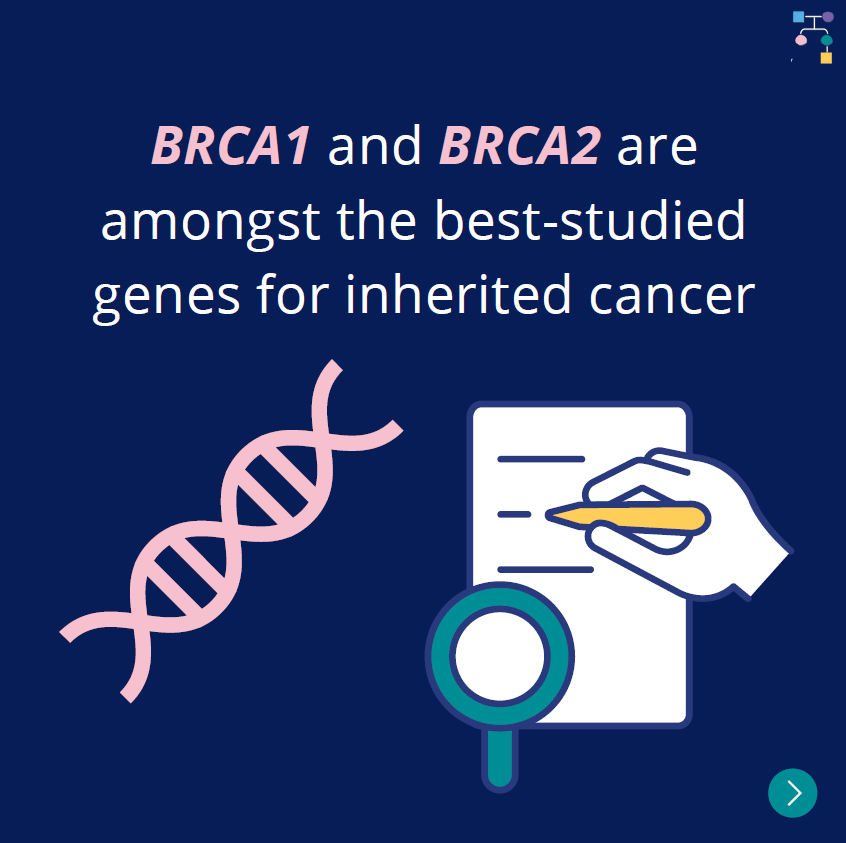
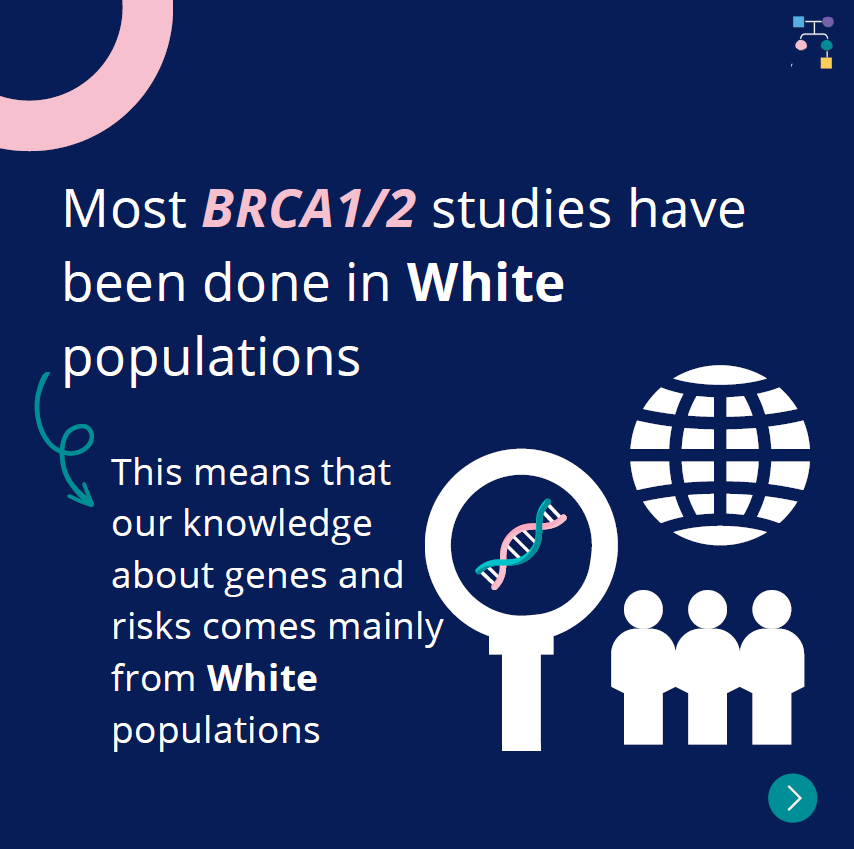
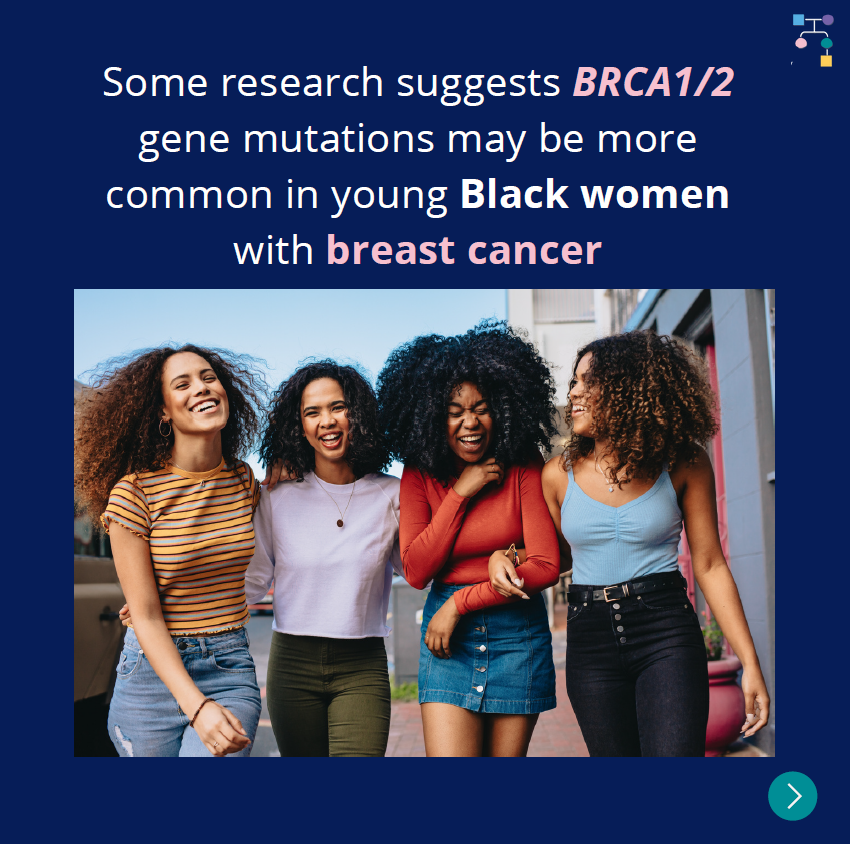
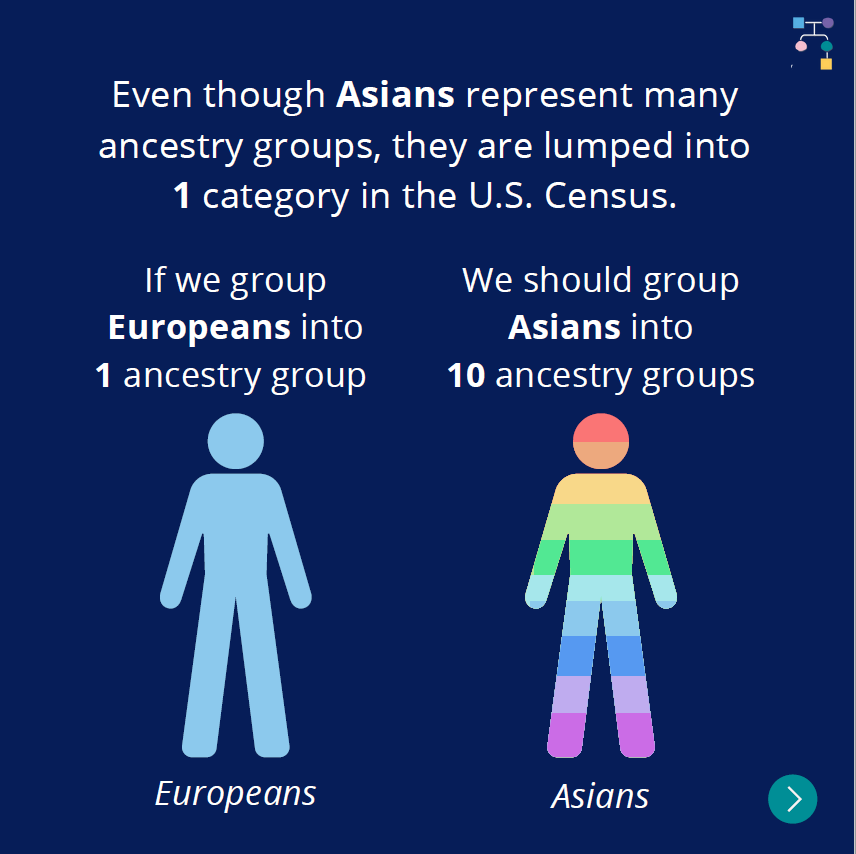
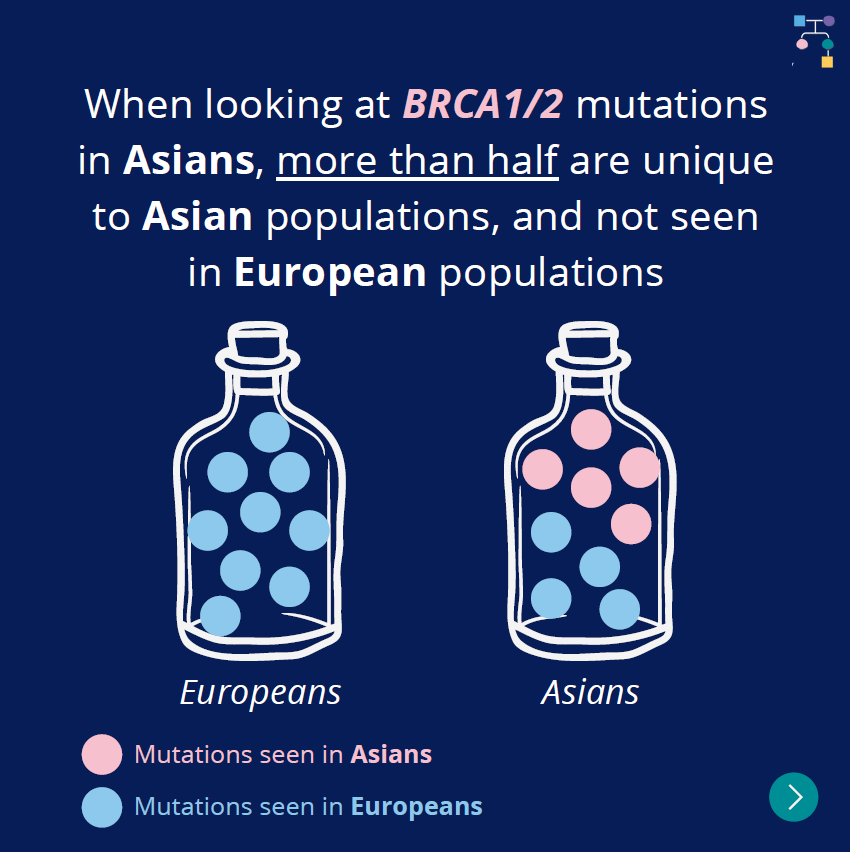
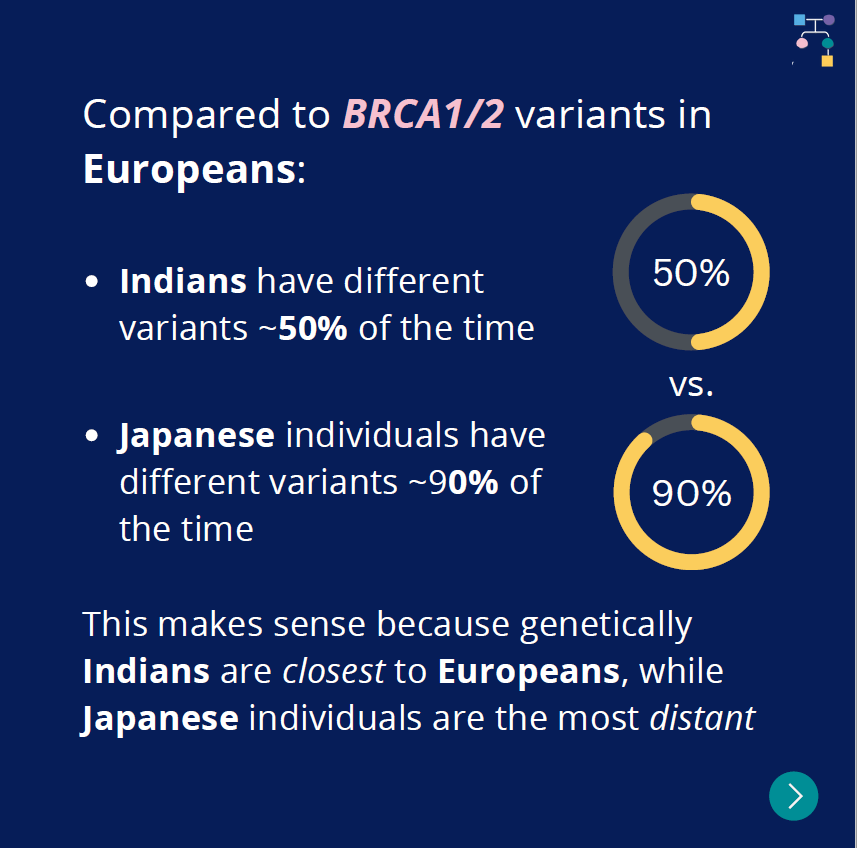

Did you know that BRCA1/2 are amongst the most well-studied genes, yet most BRCA1/2 studies have been done in White populations? This means our knowledge about genes and risks comes primarily from White populations.
• Some research suggests that BRCA1/2 gene mutations may be more common in young Black women with breast cancer.
• Even though Asians represent many ancestry groups, the U.S. Census lumps them into ONE category. If we group Europeans into 1 ancestry group, we should group Asians into 10 ancestry groups.
• Compared to BRCA1/2 variants in Europeans, Indians have different variants ~50% of the time and Japanese individuals have different variants ~90% of the time. This makes sense because genetically Indians are closer to Europeans, while Japanese individuals are the most distant.
